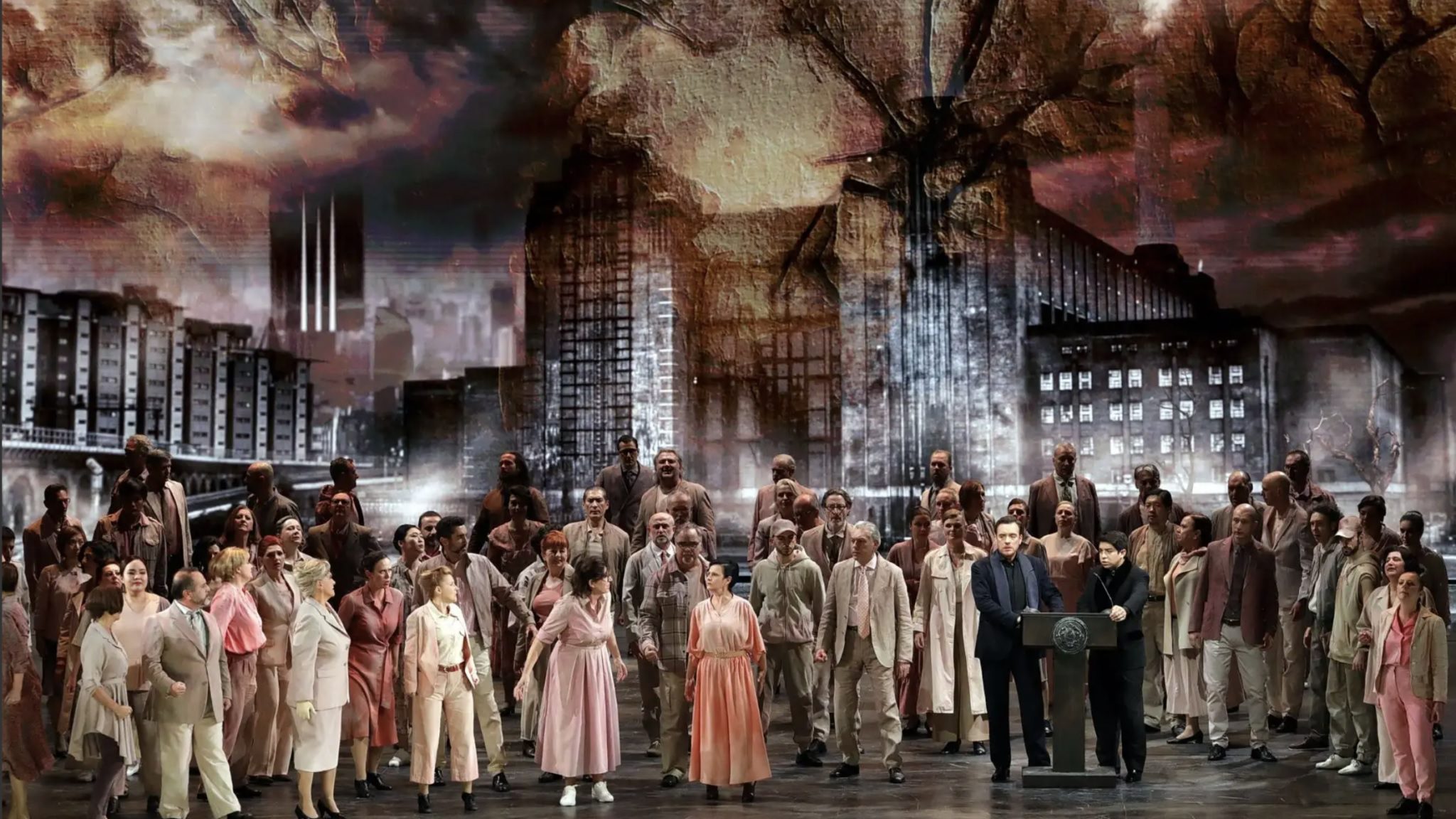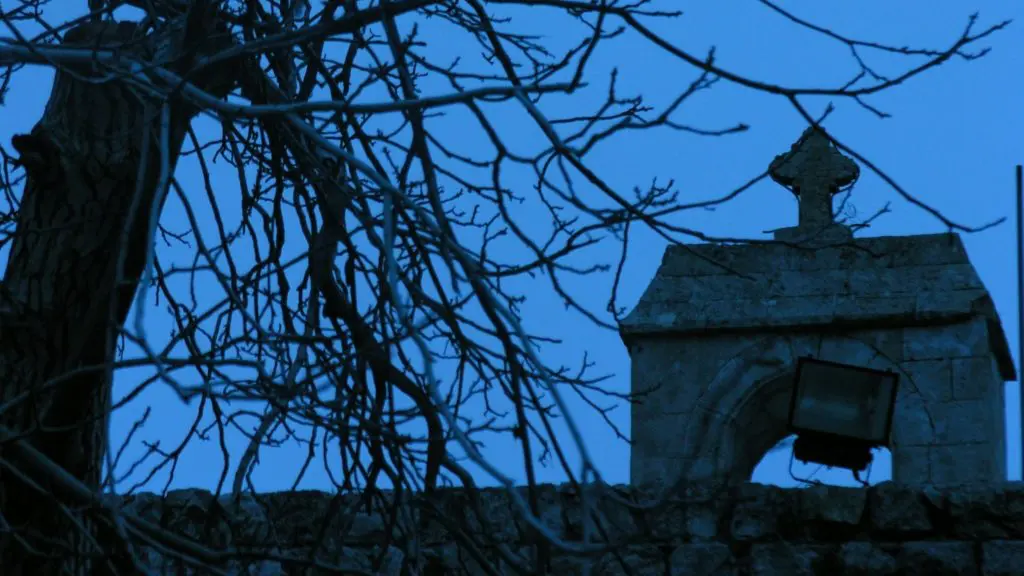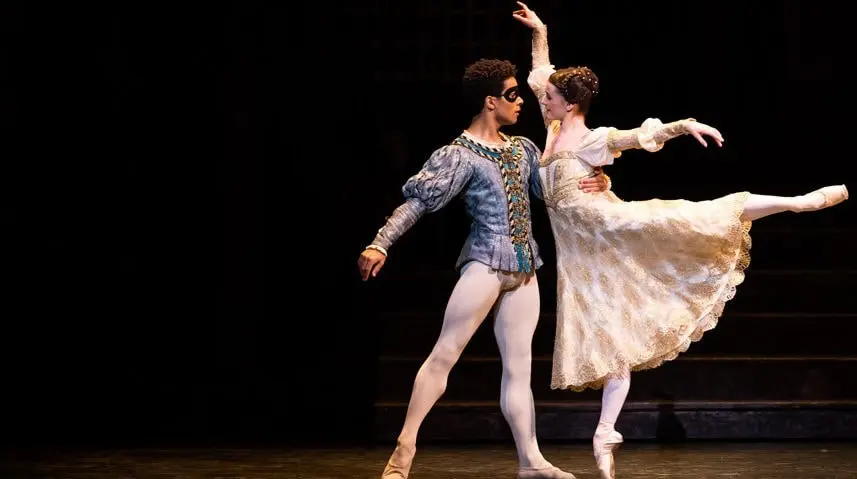Pandemics come and go, but opening night at Milan’s Teatro alla Scala—always held on December 7 in celebration of Milanese bishop St. Ambrose’s feast day—remains a constant… or at least it did until Covid-19. Arguably Europe’s most important annual cultural event, the opening night always features a new opera production. But in 2020, the production of Donizetti’s Lucia di Lammermoor was cancelled and replaced by a virtual gala. The prognosis for 2021, which featured a new production of Verdi’s Macbeth, seemed more hopeful, until our enlightened minders decided to shut down the world again over the omicron variant.
Despite the new variant’s much lighter effects and ultimate manageability, it excited office-holding killjoys everywhere; over two weeks before the premiere, Milan’s mayor Giuseppe Sala cancelled the grand dinner at the city’s storied Società del Giardino that always follows the La Scala premiere. And on the eve of the premiere, Milan was placed under an outdoor mask mandate from 10am to 10pm—apparently because the virus only infects people after morning rush hour and then retires early. Not to be outdone, the U.S. government required all persons entering the United States from all points abroad to obtain negative test result within 24 hours of departure—not at all a certainty.
These factors, combined with a suddenly cancelled hotel reservation, prevented my usual December jaunt to Milan. Through the magic of MediciTV, however, I was able to see Macbeth as it opened, featuring the star soprano Anna Netrebko as the title character’s determined Lady.
The Italian director Davide Livermore returned for another La Scala opening night new production. His earlier efforts had been a mixed success at best. Setting Verdi’s Attila in a quasi-World War II milieu with the Italians as the opera’s Romans and the Germans as the invading Huns was labored and lugubrious. His framing of Puccini’s Tosca was fairly traditional, but seemed overengineered, particularly in the final scene when Tosca leaps from Rome’s Castel Sant’Angelo and is suspended falling through space as the curtain closes.
Sadly, Macbeth turned out to be more of a miss than a hit. Livermore replaced the original Scottish setting of Verdi’s opera and Shakespeare’s play with a modern urban gangster war. The idea is far from original. Theater directors have toyed with it for at least forty years, not only with Macbeth but with other operas featuring political power tainted by betrayal and a hint of sexuality.

The concept can work, but here, it did not. Giò Forma’s sets approach dimensions of ostentation rarely seen since the classic gangster film Scarface. The Macbeths inhabit a vast penthouse high above a soulless modern city. Enormous video projections by an artist known only as “D-Wok” provide an urban landscape that sometimes rotates, leaving the impression of a science fiction starfield. Most of the time, the sets distracted from the action on stage—action which, due to the work’s immense psychological tension, tends toward deep introspection competing with a sexualized intimacy with power.

The projections’ most interesting, if not exactly subtle, moment came nearly at the end, when the cityscape blows up as the army of Birnam Wood marches in for the kill—here incongruously delivered by a sword thrust, in the finest tradition of old-school theatrics, into Macbeth’s armpit. Netrebko’s costuming, by Gianluca Falaschi, made Lady Macbeth look like a Real Housewife of Milan, a characterization fortified by her entrance aria “Vieni t’affretta,” delivered here with a cigarette and a drink. The baritone Luca Salsi’s blustery Macbeth strutted around in black, like a thug of East European provenance, a look that often deprived the role of the subtlety that its most successful performers have delivered. This Macbeth’s disappointments emerge with a crudity that does not suit the part. In his final aria “Pietà, rispetto, amore,”—three things Macbeth realizes he will not enjoy, in an old age he does not quite realize he will never have—he crushes a highball glass in his closed fist.
Salsi sings often at La Scala, and his bellowing vocal performance was a bit routine. Netrebko has performed Lady Macbeth to great acclaim throughout Europe and at New York’s Metropolitan Opera, but some of the bloom seemed absent from the voice this time. Demanding premieres—especially in pandemic times when restrictions were tightening—add layers of stress and exhaustion that can certainly affect performance. The high notes were elusive or in some cases abbreviated, and the voice shows signs of darkening and thickening toward what could be a transition to mezzo parts later in life. The voluptuous middle register and irresistible charisma that have made Netrebko a world-class star were still very much in evidence, even if some booing resonated from the loggionisti who wished to show their displeasure from on high.
A starry supporting cast can help a heavy performance, but the otherwise fine bass-baritone Ildar Abdrazakov (who performed the title role in Livermore’s earlier opening night production of Verdi’s Attila at La Scala) lacks the low notes for a convincing Banquo. Francesco Meli fared better in the tenor role of Macduff, whose major moment comes in the aria “Ah, la paterna mano,” which is addressed to the oppressed people of Macbeth’s realm. His plangent lyricism brought a humanity that the stale production often lost; one could almost forget that his oppressed people were dressed in odd blue workmen’s uniforms and artlessly confined behind a fence.
Riccardo Chailly became La Scala’s music director in 2017 and has achieved much in the post. His Verdi performances have a lighter touch than some might prefer, but they are nimble and access the full range of feeling to great effect. In this case, a light hand was quite a welcome change.
Europe is slowly emerging from its omicron hysteria—in some places helped by political expediency that has raised questions about how necessary many of the security protections truly were. If we have come at last to the much-awaited end of the pandemic, we can hope the arts will resound with less apprehension and greater creativity than La Scala’s Macbeth could offer.





